80% of consumers now rely on AI summaries for nearly half their searches, slashing traffic to traditional websites by as much as 25%. At the same time, almost 60% of people say they use AI to research products before buying.
What does this mean for businesses? It means if your brand isn’t showing up in AI answers, you’re invisible at the most important time in the buyer’s journey, when they’re deciding what to buy.
So, it’s no surprise my inbox is full of pitches from sales teams insisting their AEO tool is “the one.” But after testing, auditing, and comparing many a tool, our team narrowed the field to the platforms that actually move the needle and meet the real needs of marketers in this new discipline.
What is Answer Engine Optimization?
Answer Engine Optimization (AEO) is the practice of winning accurate, prominent placement inside AI-generated answers across ChatGPT, Gemini, Perplexity, Google’s AI Overviews, and shopping assistants. Where SEO chases rankings, AEO engineers your brand’s facts, structure, and evidence so models can cite, summarize, and recommend you with confidence. It combines observability (citations, coverage, sentiment), remediation (fixing factual drift, closing content gaps), and technical work (schema, product feeds, docs, robots). The outcome: your brand becomes the trusted answer, not a footnote.
Why AEO Tools Matter Now?
Search is looking very different than it did just a year or two ago, and us marketing teams are desperately trying to keep up. Instead of clicking through a list of blue links, users expect direct, conversational answers from AI platforms like ChatGPT, Gemini, and Perplexity. Google’s own AI Overviews confirm the shift: search isn’t just about ranking anymore, it’s about being cited.
That shift creates two big challenges for businesses:
- You can’t measure what you don’t see. Traditional SEO tools don’t tell you how often AI platforms mention your brand (or whether they’re getting the details right).
- Visibility alone isn’t enough. Even if you’re included in an AI response, you need to know how you’re positioned: are you the trusted recommendation, or a footnote buried under competitors?
Answer engine optimization (AEO) tools bridge this gap. They track your presence inside AI answers, flag inaccuracies or
sentiment issues, and give you actionable ways to optimize so that large language models recognize your brand as the authority.
In short: SEO got you found. AEO ensures you don’t get ghosted.
Best AEO Tools in 2025 (At a Glance)
|
Tool |
Best For |
Starting Price |
|---|---|---|
|
Goodie |
End-to-end AEO features (monitoring, actions and attribution) for enterprises |
Starts at $495 / Custom (startup → enterprise) |
|
Semrush AI Toolkit |
SEO teams adding AI visibility |
$99 / domain per month (add-on) |
|
Scrunch AI |
Visibility analytics for enterprises and agencies |
~$300 / month |
|
Surfer SEO + AI Tracker |
Content optimization + AI monitoring |
$79–219 / month (+$95+ add-on) |
|
Writesonic |
Content writing + AI search analytics |
$39 / month (Pro ~$249+) |
|
Relixir |
Enterprises and high-growth start-ups |
Not public |
|
Gauge |
Data-focused marketing teams |
$600 / month |
|
Evertune |
Brand perception benchmarking |
Not public |
|
Bear AI |
SMB-friendly with outreach tools |
$150-500 / month |
|
Nightwatch |
SEO + AI rank tracking |
$32 / month |
How AI Search Visibility Is Measured
Goodie recently published an AEO Periodic Table, a framework that breaks down the 15+ factors influencing how brands surface in AI search results. These aren’t guesses; they’re based on analysis of how LLMs like ChatGPT, Gemini, and Perplexity retrieve and rank sources.
At a high level, visibility is determined by four core categories:
- Content Quality & Relevance → Is your content clear, comprehensive, and aligned with the conversational queries users actually ask?
- Credibility & Trust → Are you validated by third-party sources (awards, certifications, Wikipedia, news coverage, .gov/.edu references)?
- Citations & Mentions → Do trusted publishers and authoritative domains cite or mention your brand in ways LLMs can retrieve?
- Topical Authority & Expertise → Are you consistently publishing deep insights in your niche, building entity-level authority?
And those are just the top five factors out of the fifteen that impact visibility in AI search engines. For the entire list of ranking factors and a deeper dive into each, check out our study.
And that’s just the start! The periodic table highlights 15 factors in total, from structured data and freshness to sentiment analysis and brand perception.
👉Check out the full AEO Periodic Table here for a detailed breakdown.
Things to Consider When Selecting an AEO Tool
When you’re comparing AEO platforms, keep these factors in mind:
- AI Visibility & Coverage: Does the tool track your brand across all the major AI platforms (ChatGPT, Gemini, Perplexity, Claude, Google AI Overviews)? How often is the data refreshed? Daily, weekly, or less?
- Actionable Insights (Not Just Dashboards): Good tools don’t just show you visibility metrics; they tell you why your brand shows up (or doesn’t) and recommend fixes.
- Content Optimization Support: Some platforms include AI writing help, schema recommendations, or structured content scoring. Others only track visibility. Choose based on whether you need creation help, monitoring, or both.
- Ease of Use & Team Fit: Is the interface intuitive? Can multiple team members collaborate? Watch out for per-seat pricing if you’re rolling out across SEO, content, and growth teams.
- Pricing & Scale: Plans vary from <$50/month lightweight trackers to enterprise solutions that cost thousands. Check limits on domains, prompts, or keywords before committing.
- Adaptability to AI Trends: AI search engines are evolving quickly. The best AEO tools update frequently, add new platforms (like Copilot or Grok), and ship features that keep pace with how people actually search.
Best AEO Tools in the Game (Detailed Reviews)
1. Goodie AI
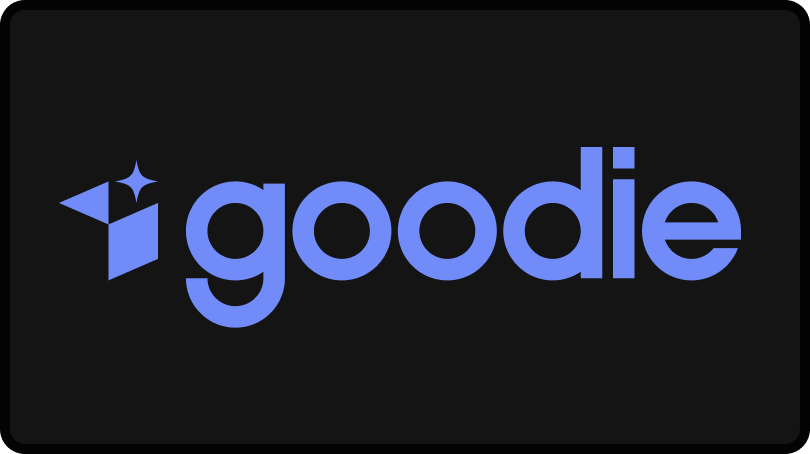
Best for: Brands that want the most complete, AI-native platform for tracking, optimizing, and improving visibility across AI search engines.
Founded in 2023 and based in New York City, Goodie AI has quickly become the benchmark for Answer Engine Optimization. Unlike legacy SEO platforms that bolted on AI features, Goodie was built AI-first, giving it an edge in monitoring visibility, analyzing sentiment, and connecting AI search performance directly to business outcomes.
Trusted by startups and enterprises alike, Goodie integrates with major AI search engines like ChatGPT, Gemini, Perplexity, and Google’s AI Overview, helping brands not just show up, but stand out and become unavoidable no matter where users are searching. This breadth, combined with actionable recommendations and attribution, is why Goodie holds the #1 spot on our list.
Key Features
- AI Visibility Monitoring → Tracks brand mentions and visibility across top LLMs, with a unique AI Visibility Score.
- Sentiment Analysis → Measures how AI search engines perceive your brand’s content, benchmarking tone and positioning.
- AI Search Analytics & Attribution → Connects AI search visibility to real business metrics (traffic, growth, revenue).
- AI Content Writing → “Author Stamp” ensures AI-optimized content matches your brand voice and style, avoiding generic output.
- AI Optimization Hub → Generates actionable recommendations with AI Visibility Impact (AVI) reports to highlight which pages drive visibility and where to improve.
Pros
✅ AI-native platform purpose-built for generative engines.
✅ Links AI visibility directly to growth and revenue impact.
✅ Streamlines optimization workflows, reducing manual guesswork.
✅ Aligns SEO, content, and growth teams with shared visibility reports.
✅ Future-proof strategy as AI search adoption accelerates.
Cons
⚠️ Some advanced features still being rolled out as the platform evolves.
⚠️ No report export functionality (yet).
⚠️ Learning curve for teams brand-new to AI search optimization.
Pricing
Tiered plans available for startups and enterprises; details available upon request.
2. Semrush
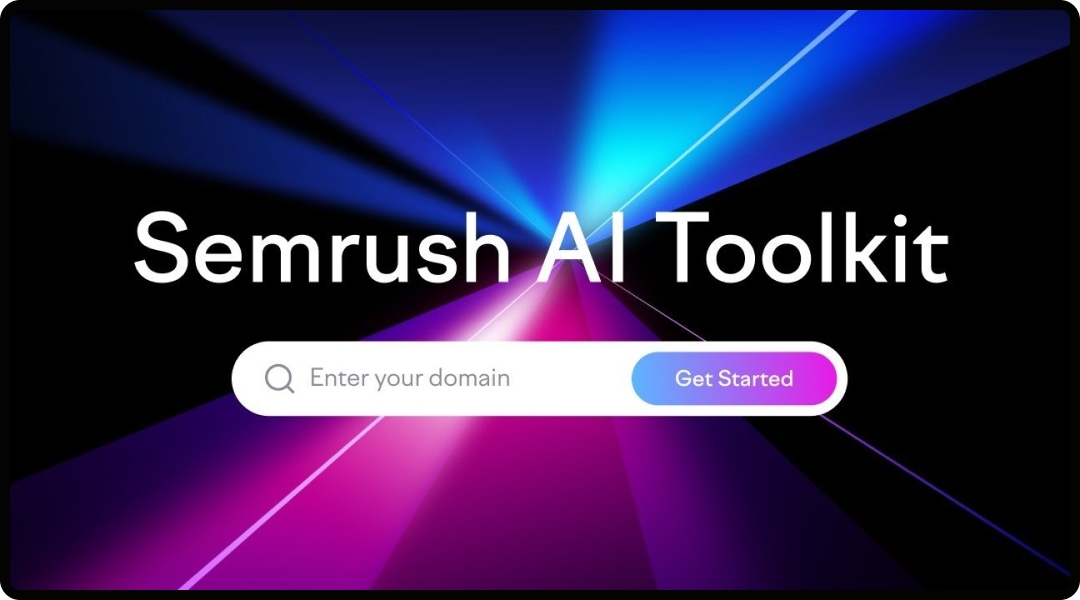
Best for: Brands and marketers who want an integrated AI-visibility solution within a full-featured SEO platform.
Overview
Launched in March 2025, Semrush’s AI Toolkit brings AI visibility tracking, competitive benchmarking, and sentiment analysis into its established SEO ecosystem. It helps brands see how they’re featured in LLM search channels like ChatGPT, Gemini (Google AI), and Perplexity.
Key Features
- AI Brand Visibility & Market Share → Tracks how often your brand appears in AI-generated responses and compares performance against industry peers.
- Sentiment & Content Analysis → Analyzes tone, themes, and how AI systems describe your brand.
- Prompt & Query Insights → Identifies top AI queries and tracks visibility at the prompt level, down to specific questions users ask.
- Custom Reporting → Integrated with Semrush’s “My Reports,” allowing export of AI insights into presentation-ready templates.
Pros
✅ Real-time AI visibility tracking across multiple platforms.
✅ Integrated within a comprehensive SEO toolkit (great for streamlined workflows).
✅ Supports reporting for teams and optimizing sentiment-informed strategies.
Cons
⚠️ Insights are high-level; lacks deeper diagnostic explanation for why AI perceives your brand a certain way.
⚠️ Costly; priced at $99 per domain per month, and requires individual seats for team access.
⚠️ Best suited for users already leveraging the Semrush platform; not ideal for standalone AI search monitoring.
Pricing
The AI Toolkit is an add-on to any Semrush subscription (Pro, Guru, or Business). It costs $99 per domain, per month, billed on top of your regular Semrush plan. Each domain you want to monitor requires its own subscription to the Toolkit.
3. Scrunch AI

Best for: Enterprise teams and agencies aiming to deeply monitor, diagnose, and architect their brand’s presence across AI-driven and traditional search engines.
Overview
Founded in 2023 and launched out of beta in late 2024, Scrunch AI helps brands understand how AI agents interpret, cite, and present their content. Backed by a $15M Series A, Scrunch is already used by 500+ brands (including Lenovo and Penn State) to monitor visibility across platforms like ChatGPT, Gemini, Perplexity, and Google AI Overviews.
Key Features
- AI Search Monitoring → Tracks brand mentions, sentiment, and visibility across AI platforms.
- Knowledge Hub → Flags inconsistencies between your site, third-party sources, and AI outputs.
- Journey Mapping → Visualizes how AI crawlers “see” your business across the customer journey.
- AXP (Agent Experience Platform) → Creates AI-optimized content feeds without changing your website.
Pros
✅ Strong enterprise adoption and funding momentum.
✅ Identifies misinformation and content gaps.
✅ Supports agencies with multi-client visibility management.
Cons
⚠️ Enterprise-focused; pricing starts around $300/month.
⚠️ Still maturing; AXP is in pilot stage.
⚠️ No built-in content editing; insights must be actioned elsewhere.
Pricing
Starts at ~$300/month; enterprise tiers available on request.
4. Surfer SEO (with AI Add-Ons)
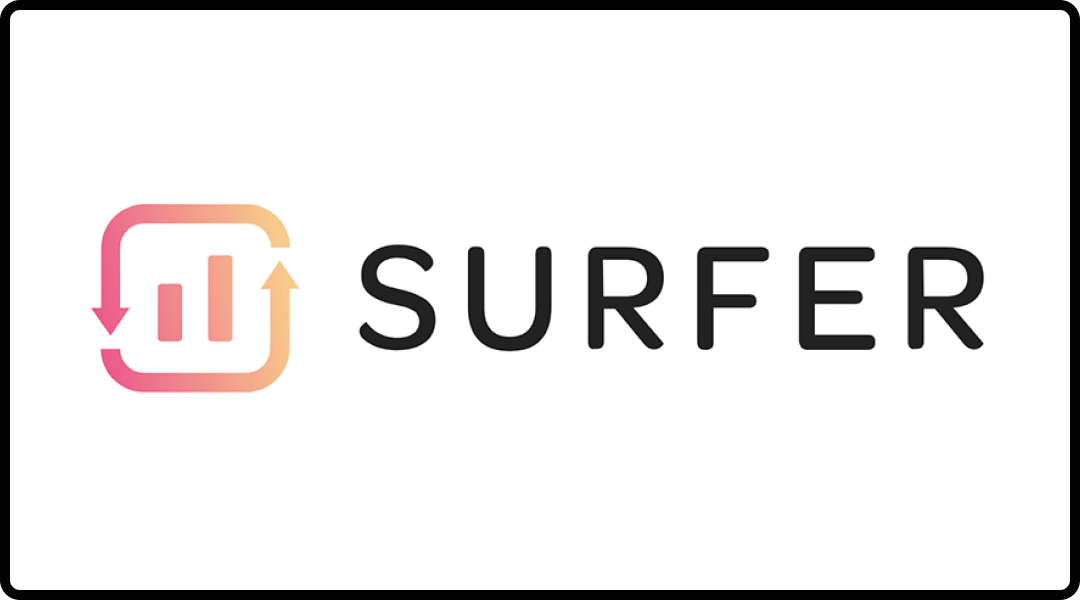
Overview
Surfer SEO is a cloud-based content optimization platform that combines robust on-page SEO tools with AI-powered writing features. Its Surfer AI module guides content creation using real-time SERP data and machine learning. The newly introduced AI Tracker add-on helps track your brand’s visibility and mentions across generative AI platforms like ChatGPT, Gemini, Google AI Overviews, and more.
Key Features
- Content Editor & Auto-Optimize → Edit content with real-time feedback on word count, keyword usage, structure, and a dynamic “Content Score.”
- Surfer AI Writer (Surfy) → Generates outlines and drafts based on top-ranking content, SERP intent, custom inputs, and tone settings.
- AI Tracker (Add-on) → Monitors brand mentions and prompt-level visibility in AI-generated answers. Offers prompt editing, source transparency, and visual trend insights, updated weekly.
- Other Optimization Tools → Includes SERP Analyzer, Content Audit, Keyword Research, Topical Map, AI Content Detector, AI Humanizer, internal linking, and plagiarism checker.
Pros
✅ Strong correlational proof: Surfer’s Content Score shows a ~26–28% alignment with Google rankings (higher than many other ranking signals).
✅ Full AI content optimization: research, drafting, editing, and auditing all in one platform.
✅ AI Tracker adds missing visibility insights by showing how your brand appears in AI platforms
✅ Great team support through collaboration features and integrations with WordPress, Docs, and APIs.
Cons
⚠️ AI Tracker is an add-on; it’s not included in core plans and costs extra.
⚠️ Surfer focuses on on-page and content visibility; it lacks backlink tools, technical SEO, and broader AEO features vs. all-in-one platforms.
⚠️ Some users caution about over-reliance on optimization metrics, which may discourage creativity or lead to content homogenization.
Pricing
- Plans: Essential ($79–99/month) and Scale ($175–219/month), billed annually.
- AI Articles: Limited per plan, with extra credits available per usage.
- AI Tracker Add-on:
- $95/month for 25 prompts
- $195/month for 100 prompts
- $495/month for 300 prompts
5. Writesonic
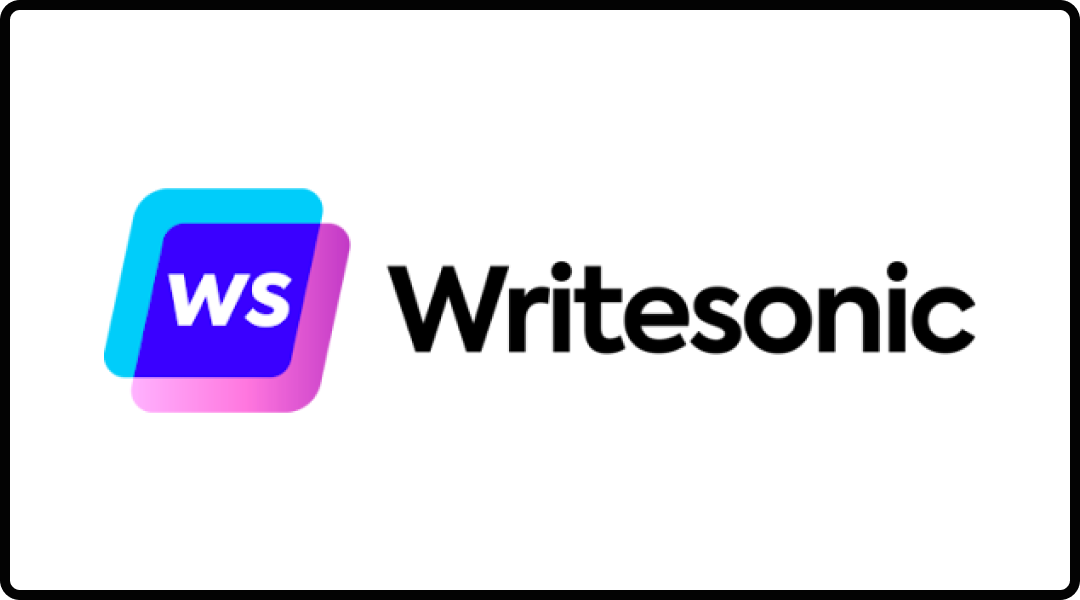
Best for: Brands and teams that want to create AI-optimized content while tracking and improving visibility across AI platforms.
Overview
Since its founding in 2020, Writesonic has grown from being an AI content generation tool into a larger GEO/AEO platform. In 2025, the team rolled out its GEO capability, equipping marketing teams with the ability to rack visibility across the major AI platforms, as well as traditional search.
Key Features
- AI Search Visibility Tracking → Monitor real-time brand visibility, sentiment, citations, and share-of-voice across AI platforms and engines.
- Action Center → Converts visibility insights into actionable, prioritized SEO and content adjustments.
- Content & SEO Automation → Built-in AI tools for keyword research, content creation, SEO audits (with automatic fixes), and optimization, powered by integrations with Ahrefs, Google Keyword Planner, and others.
- AI Traffic Analytics → Tracks AI crawler visits (e.g., ChatGPT’s server-side fetches) that traditional analytics miss, uncovering hidden brand presence.
Pros
✅ Comprehensive coverage of both AI search visibility and traditional SEO in a single, unified platform.
✅ Insight-to-action pipeline via the Action Center, making GEO intelligence genuinely actionable.
✅ Accessible interface and automation features accelerate workflows for marketers and teams.
Cons
⚠️ Advanced GEO and SEO features require higher-tier subscriptions (Professional plan or above).
⚠️ Features have a learning curve, especially for teams new to GEO and AI search analytics.
Pricing
Plans start at $39/month for basic content and SEO tools (annual billing). To access GEO (AI search visibility tracking), you’ll need at least the Professional plan (around $249/month) or higher.
6. Relixir

Best for: Enterprises and high-growth startups that want an AI-native platform for monitoring, benchmarking, and improving visibility across answer engines.
Overview
Founded in 2025 and backed by Y Combinator, Relixir is an end-to-end GEO (Generative Engine Optimization) platform redefining how brands monitor and grow their presence across AI search engines. Unlike traditional SEO tools for AI, Relixir features GEO automation, starting with prompt tracking and ending with targeted content towards keywords trained on your knowledge base. Relixir works with Rippling, Airwallex, Hackerrank, (+ more) to analyze and improve AI search visibility. The platform hosts both self-serve capabilities and enterprise features, depending on your budget.
Key Features
- AI Visibility Benchmark → Monitor how often and in what context your brand appears in AI-generated answers across ChatGPT, Perplexity, Gemini, and Google’s AI Overviews.
- Knowledge Base Intelligence → Continuously trains on your case studies, customer reviews, brand guidelines, and indexed pages ensuring that all recommendations reflect your voice and authority.
- Custom Deep Research Agents → Agents that perform long-form research and topic modeling, allowing your team to publish authoritative content on complex, technical, or niche subjects faster
Pros
✅ Supports both self-serve and enterprise-grade features
✅ End-to-end GEO for monitoring and content automation
✅ Good customer experience and word of mouth
Cons
⚠️ Less venture funding
⚠️ Lean team
⚠️ Add-on costs for additional advanced features
Pricing
Pricing is not publicly available.
7. Gauge

Best for: Enterprise and data-focused marketing teams that prioritize actionable visibility insights over basic prompt tracking.
Overview
Gauge is a data-focused AEO platform that helps marketing teams understand exactly how large language models describe their brand and competitors. It collects thousands of AI-generated answers each day, analyzing responses and citations to deliver precise, data-driven recommendations. Gauge surfaces concrete, evidence-based actions drawn directly from real AI response patterns.
Key Features
- Advanced Gap & Coverage Analysis → Pinpoints exactly where your brand appears, or is missing, from AI answers.
- Citation-Level Analytics → Reveals which sources and URLs AI models rely on most.
- Actionable Recommendations Engine → Translates insights into concrete optimization steps.
Pros
✅ High data quality sourced from real user-facing AI interfaces, not backend APIs
✅ Deep competitor intelligence showing how rivals are positioned within AI-generated results
Cons:
⚠️ Focuses on analytics rather than content generation
⚠️ Works best alongside traditional SEO platforms given its specialized focus
Pricing
Plans start at $600 / month.
8. Evertune

Best for: Benchmarking your brand’s presence and perception across AI platforms.
Overview
Founded in 2024 in New York City, Evertune was built by Ed, Poul, and Brian to solve a frustrating problem: the same query can produce very different responses depending on the LLM. Their solution? The AI Brand Index: a visibility and perception tracker for brands inside answer engines.
Key Features
- Sentiment & Perception Analysis → Measures tone (positive/negative/neutral) in AI mentions and compares your brand’s perception against competitors.
- Competitive Benchmarking → Identifies where your brand ranks in AI-generated recommendation lists and highlights which rivals get more favorable exposure.
- Actionable Insights → Offers specific recommendations to improve SEO, content, and brand reputation in LLMs.
- Brand Monitoring → Tracks frequency, context, and accuracy of your brand in AI-generated answers.
Pros
✅ Helps prioritize SEO and content investments.
✅ Flags inaccuracies or gaps in how AI describes your brand.
✅ Reveals competitor positioning and perception strategies.
Cons
⚠️ Limited to AI-generated outputs (doesn’t cover web, social, or ads).
⚠️ New player in the market; proof of adoption and case studies are still emerging.
⚠️ Sparse details on current capabilities and active users.
Pricing
Not publicly listed.
9. Bear AI
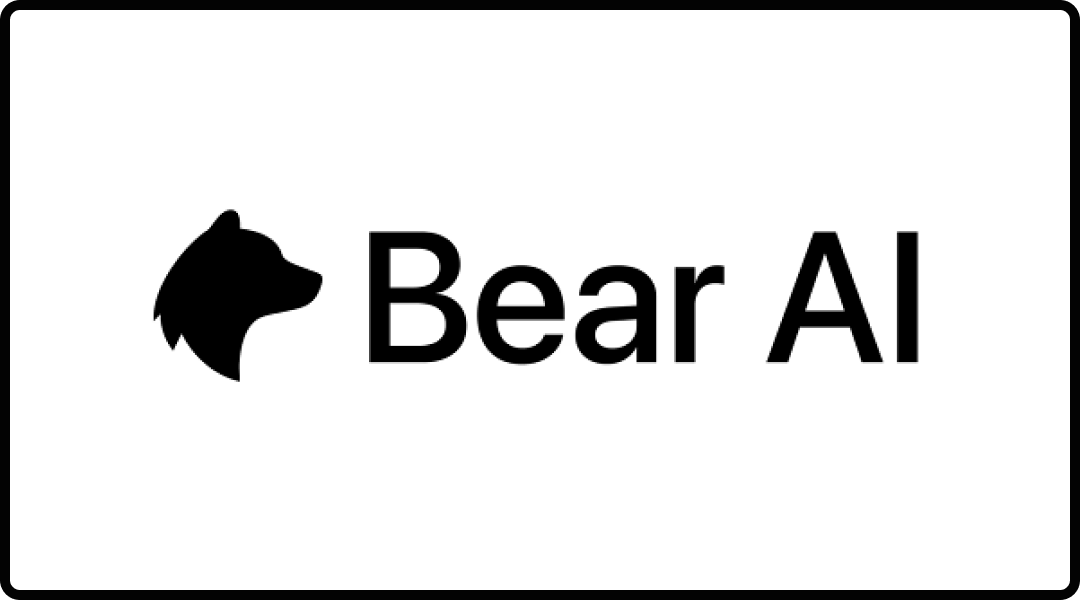
Best for: Teams that want a self-serve platform for AI visibility plus outreach tools, offering direct contact workflows in addition to GEO tracking, all at a competitive price.
Overview
Bear AI is a self-serve AEO platform that combines AI search visibility tracking with outreach and blog generation tools. It’s positioned as one of the most affordable options on the market, with customers like Browserbase and WisprFlow already reporting strong gains (~50%) in AI search visibility.
Key Features
- AI Visibility Tracking → Monitors brand presence, sentiment, and share-of-voice across major AI engines.
- Source Discovery & Outreach → Identifies third-party sources currently cited by AI systems and surfaces contact emails so brands can reach out directly and update or influence content.
- Blog Generation Suite → Built-in tool for producing AI-optimized blog content tailored to boost visibility.
- Self-Serve Workflow → Launch tracking, outreach, and content generation without needing enterprise onboarding.
Pros
✅Combines GEO tracking with proactive outreach tools and content generation in one package.
✅ Very cost-effective: pricing starts at $150/month for up to 5 topics, 100 prompts, and daily insights.
✅ Self-serve platform means rapid setup and low friction for small to mid-sized teams.
Cons
⚠️ Still early-stage, fewer enterprise case studies available.
⚠️ Outreach features depend on available publicly sourced emails, which may vary in quality.
⚠️ As a startup, its feature set may evolve quickly; planning for change is advised.
Pricing
- Basic: $150/month for up to 5 topics, 100 prompts, daily insights, sentiment analysis, Slack support.
- Pro (most popular): $500/month for up to 10 topics, 500 prompts, tracking in 100+ countries, AI agent support for outreach, and a dedicated GEO expert.
- Enterprise: Custom pricing; includes everything in Pro, plus custom GEO management, unlimited prompts/topics, unlimited support, beta access, and integrations.
10. Nightwatch
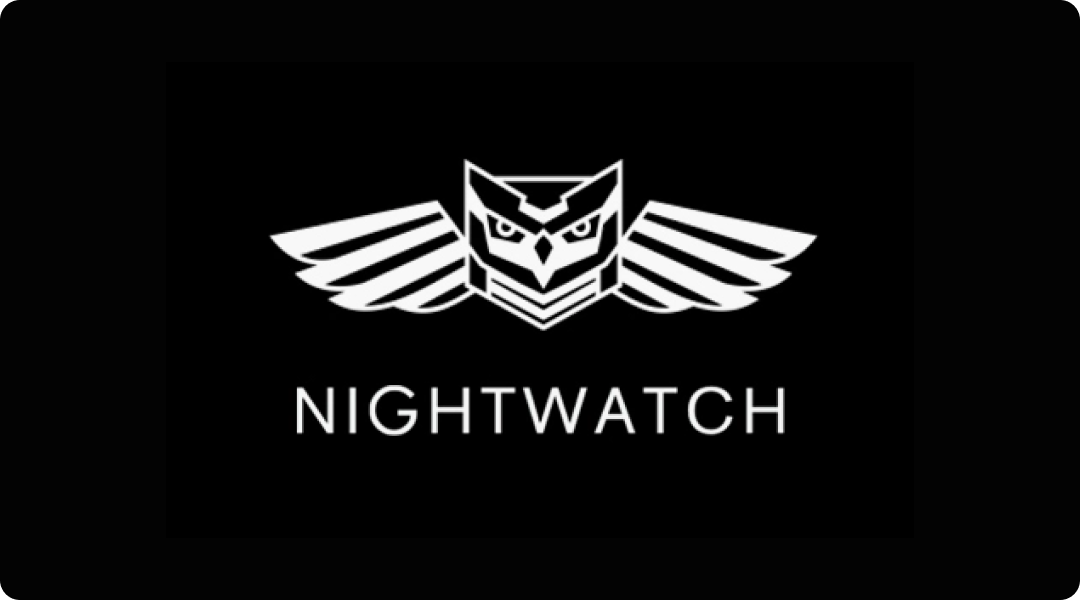
Best for: SEO professionals who want one platform to monitor both traditional search rankings and AI-driven visibility (like ChatGPT, Claude, and Google AI Overviews).
Overview
Nightwatch is a well-established SEO monitoring platform renowned for accurate local and global rank tracking. Its AI/LLM tracking features enable users to monitor how their content performs across AI-powered responses from models such as GPT-4, Claude, and Google’s AI Overviews (alongside traditional SERPs).
Key Features
- AI & LLM Visibility Tracking → Track keyword performance across AI platforms with prompt-level detail and competitive benchmarking.
- AI Overview Snippet Monitoring → Automatically includes AI-generated snippet rankings (e.g., Google’s AI Overviews) in the keyword table; no extra setup required.
- Rank Tracker & SERP Features → Enables tracking of various SERP elements including featured snippets, knowledge panels, and local packs.
- Full SEO Suite → Includes site audits, keyword research, automated reporting, geo-targeted ranking (hyper-local), and integrations with Google Analytics/Search Console.
Pros
✅ Combines traditional SEO and AI visibility tracking within a single dashboard.
✅ Easy access to AI snippet metrics alongside organic rankings (great for spotting trends).
✅ Offers excellent local rank tracking and white-label reporting for agencies.
Cons
⚠️ Currently supports a limited set of AI models (mainly GPT-4o-mini and Claude 3.5 Haiku).
⚠️ AI metrics are new and may behave differently than traditional ranking KPIs, requiring adjustment in strategy.
Pricing
- Starter: ~$32/month (annual billing) or $39 month-to-month; covers ~250 daily tracked keywords, site audits, reporting, & AI tracking.
- Higher Tiers: Scale up to plans supporting 1,000 to 10,000+ tracked keywords, expanded audit pages, more websites, and agency-friendly features.
Which AEO Tool Is Right for You?
With so many platforms entering the space, the “best” answer engine optimization tool really depends on your team’s size, budget, and goals. Here’s a quick guide to help you match the right fit:
- Startup / Scrappy Teams → Otterly.AI, Bear AI: Affordable entry points that let you track prompts, visibility, and citations without enterprise onboarding. Bear even adds outreach tools for sourcing citations.
- Enterprise / Complex Organizations → Goodie AI, Scrunch AI, Yext Scout: Built for scale with advanced visibility tracking, sentiment analysis, and multi-location or multi-client support. Goodie and Scrunch both offer enterprise-grade analytics, while Yext ties insights directly to execution.
- Content-Led Teams → Surfer SEO (+AI Tracker), Writesonic: If content production is your growth engine, these tools help you optimize drafts for both SERPs and AI search. Surfer brings precision on-page SEO, while Writesonic blends AEO/GEO workflows.
- SEO Suites Wanting AI Visibility → Goodie, Semrush AI Toolkit, Nightwatch: Ideal if you’re already using these platforms for traditional SEO and want to layer in AI search monitoring without adding another vendor.
- Competitive Benchmarking → Goodie, Evertune: Focused on how AI engines perceive your brand versus rivals. Great for spotting gaps in sentiment, positioning, and recommendation lists.
Bottom line: Don’t chase shiny dashboards (although I love a good dashboard). Choose the tool that solves your visibility problem; whether that’s showing up at all, fixing how you’re described, or scaling insights across a global team.
How to Use AEO Tools Effectively
- Prioritize Conversational Queries: Use your tool to uncover long-tail, natural-language prompts. AI engines reward content that directly answers questions the way people actually ask them.
- Structure for AI & Snippets: Apply schema (FAQ, Product, HowTo) and keep answers clear, concise, and list-friendly. Tools can help surface which content is already getting pulled into AI Overviews.
- Benchmark Against Competitors: Track how often rivals are cited, what tone AI uses, and which sources are reinforcing their authority. Then adjust your content to close those gaps.
- Monitor & Iterate Continuously: AI search shifts weekly. Use your AEO tool to catch changes in visibility, sentiment, or citations (and re-optimize before competitors take the lead).
- Pair Tech With Human Expertise: Tools surface insights, but authoritative content still wins. Layer in subject-matter expertise, original perspectives, and thorough research so AI sees you as the credible source.
Real-World Impact of AEO Tools
It’s one thing to compare features, it’s another to see how AEO tools transform visibility in practice. So we turned the lens on ourselves.
At NoGood, we ran our own agency through Goodie’s AI Visibility Index and monitoring suite to see exactly how we showed up across ChatGPT, Gemini, Perplexity, and Google AI Overviews and how we could improve our AI visibility. Not only did we get outlined recommendations for instant improvements, but the proof was in the pudding. Overall, we saw:
- 335% increase in traffic from AI sources
- 48 high-value leads in one 2025 quarter
- +34% increase in AI Overview citations within three months
- 3x more brand mentions across generative platforms like ChatGPT and Perplexity
- Correction of outdated service descriptions that LLMs had been pulling from third-party sources
- Visibility lift across 5 high-intent queries where competitors had previously dominated
By applying the same AEO playbook we use with clients, we turned NoGood into a test case; proving how the right tools can convert invisibility into authority inside AI answers.
👉 Read the full story here: NoGood Case Study
Empower Your AI Search Visibility
AI search isn’t a future trend; it’s the present reality shaping how people discover, research, and choose brands. If your company isn’t showing up in ChatGPT answers, Gemini snapshots, or Google AI Overviews, you’re missing the moment when buying decisions are made.
That’s why choosing the right AEO tool matters. While many platforms claim to track visibility, only Goodie is leading the charge: publishing industry studies, building frameworks like the AEO Periodic Table, and doing the research that’s shaping how marketers approach AI search.
👉 If you want more than dashboards, but a partner that’s defining the playbook for this new era, Goodie is the platform to start with. From monitoring citations to optimizing your content for generative engines, Goodie was built AI-first to help brands stay visible and credible.
Don’t wait until competitors own the answers. With Goodie, you can make sure it’s your brand that AI recommends first.
AI Search Visibility: FAQs
What is an AEO tool?
An answer engine optimization (AEO) tool tracks and improves how your brand shows up in AI-generated answers on platforms like ChatGPT, Gemini, and Google AI Overviews. It monitors citations, sentiment, and visibility so you can optimize accordingly.
Do I need an AEO tool if I already use SEO software?
Yes! SEO platforms track traditional rankings, but most don’t measure visibility inside AI answers. AEO tools fill that gap by showing you if (and how) AI platforms are citing your brand.
Are there free AEO tools?
Some platforms like Otterly.AI and Bear AI offer low-cost or limited free tiers. But most enterprise-grade features, like sentiment tracking or AI citation monitoring, require paid plans.
Which AEO tool is best for small teams?
Lightweight tools like Otterly.AI or Bear AI are budget-friendly and easy to set up, making them ideal for startups or small marketing teams.
What industries benefit most from AEO?
Any industry where buyers research heavily online (SaaS, fintech, healthcare, eCommerce and more) can all gain from AEO. If your audience uses AI tools to ask questions before buying, you need visibility there.







